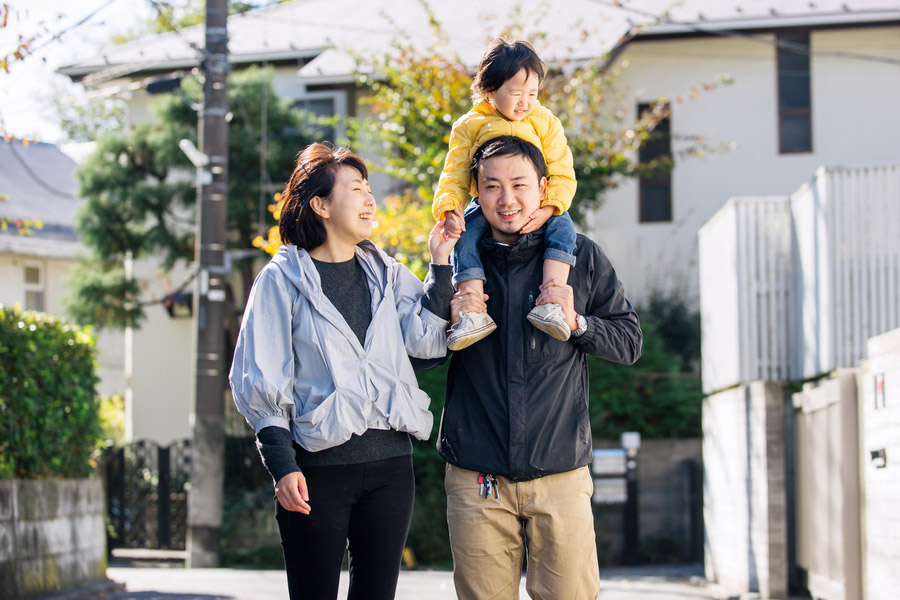
Japanese culture has always cherished family values, and these values continue to hold strong, even as the world around them changes with technology and social shifts. Despite the fast-paced changes, Japanese families still honor the traditions passed down through generations.
Family as the Heart of Society
In Japan, family life is built on a deep respect for elders and a clear sense of hierarchy. Respecting and honoring parents and older relatives isn't just a custom—it's seen as a moral duty. From a young age, children are taught to respect their elders, listen to their guidance, and help out around the house. Keeping the peace and avoiding conflicts within the family is considered important because, in Japanese culture, the needs of the group are always placed above individual desires.
These core values are evident in all the different types of families that have existed in Japan:
- Clan-based (uji);
- Traditional (ie);
- Nuclear (kakukazoku).
Uji — Family and Politics
The uji system is a clan-based structure that blends family and political relationships. In ancient Japan, many clans (or ujis) had significant influence over national politics. The term "uji" refers to a group of families linked by a common ancestor, working together for the clan's prosperity.
The head of an uji, known as "uji-no-kami", was not just a leader but also a priest who oversaw clan ceremonies. This person held considerable power, managing the clan's political, religious, and judicial affairs. He represented the clan in dealings with other clans and the state.
Uji families also practiced ancestor worship, known as "ujigami", which helped strengthen the clan's unity and influence within the community.
Ie — The Foundation of the Traditional Family
The traditional Japanese family, known as "ie", is patriarchal, with the eldest male as the head. He makes the key decisions and is responsible for the well-being of the entire family, including parents, children, and grandparents. A big part of this family structure is "filial duty", which means showing respect and taking care of one's parents and older generations.
The ie system has its roots in the Edo period (1603-1868), when expanding the family and managing the household were highly valued. In these families, several generations often lived together, keeping traditions alive and passing down property, family names, and customs.
Kakukazoku — Modern Family Traditions
Today, Japanese society has seen many changes, partly due to Western influences, but core family values still matter. Most marriages in Japan today are based on love, and the modern family often consists of a couple with or without children. Over time, roles tend to develop where the man is seen as the head of the family, and the woman takes care of the home and children. The hierarchy of women respecting men and children respecting their elders is still relevant.
There are also families where women focus on their careers, and men take on household duties. This shift began during the economic downturn and is sometimes referred to as "arubaito", which means part-time work, often done by housewives. While not traditional, this setup helps balance family life. If a woman works for the family's benefit, it's socially accepted, but if her goal is purely career advancement, she might face criticism for being selfish or not devoted enough to her family.
Family Celebrations
The importance of family traditions in Japan is also seen in the many holidays centered around children. Alongside New Year's, birthdays, and ancestor worship, Japanese families celebrate various other holidays tied to their traditions and religious practices.
March 3 — Hina Matsuri (Girls’ Day or Doll’s Day)
On this day, families with daughters display dolls representing the imperial family to pray for their daughters' health and happiness. Girls wear festive kimonos, visit friends, and exchange gifts. Hina Matsuri is not just a celebration but also a way for parents to show off their daughters' good manners to guests.
May 5 — Tango no Sekku (Boys’ Day) or Kodomo no Hi (Children’s Day)
On this day, colorful carp-shaped streamers, called "koinobori", are flown over homes to symbolize strength and courage. Families pray for their sons' health and success, enjoy picnics, and prepare traditional dishes.
November 15 — Shichi-Go-San (Children’s Festival)
Shichi-Go-San, which means "Seven-Five-Three", is a special day for children aged three, five, and seven. Parents dress their children in traditional kimonos and take them to a shrine for blessings. This festival marks an important milestone in a child's life and is a significant event for the family.
Seijin no Hi — Coming of Age Day
Celebrated on the second Monday of January, this day is for young people who have reached the age of 20. Ceremonies are held where girls wear special kimonos with long sleeves, and boys wear traditional kimonos with haori jackets. The young people visit shrines, make wishes, and receive blessings from their elders.
Japanese family traditions and values aren’t just old customs—they reflect the deep spiritual foundations of Japanese society. Understanding these traditions offers a glimpse into what makes Japanese families strong and harmonious.

